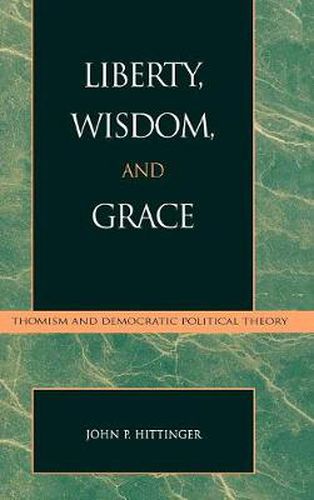Readings Newsletter
Become a Readings Member to make your shopping experience even easier.
Sign in or sign up for free!
You’re not far away from qualifying for FREE standard shipping within Australia
You’ve qualified for FREE standard shipping within Australia
The cart is loading…






The political crises of the 20th century have generated much interest in alternative accounts of democratic political regimes. This text examines the work of French Thomists Jaques Maritain and Yves R. Simon and their approaches to understanding a tradition of political philosophy stretching back to Thomas Aquinas, St Augustine and Aristotle. The work focuses upon the efforts of Maritain and Simon to develop a classically grounded political science to make sense of the prospects and perils of the modern acievement of liberal democracy and to refute the then prevalent modes of political science, foetered by positivism and Marxism. In addition, the volume traces the Thomist recovery of classical and medieval thought as a mechanism for making sense of the experience of world war and the onset of Cold War totalitarianism. The work also explores alternative visions of democratic theory, including those of John Locke and David Ricahards and discusses the work of catholic political writer Aurel Kolnai, a sharp critic of maritain.
$9.00 standard shipping within Australia
FREE standard shipping within Australia for orders over $100.00
Express & International shipping calculated at checkout
The political crises of the 20th century have generated much interest in alternative accounts of democratic political regimes. This text examines the work of French Thomists Jaques Maritain and Yves R. Simon and their approaches to understanding a tradition of political philosophy stretching back to Thomas Aquinas, St Augustine and Aristotle. The work focuses upon the efforts of Maritain and Simon to develop a classically grounded political science to make sense of the prospects and perils of the modern acievement of liberal democracy and to refute the then prevalent modes of political science, foetered by positivism and Marxism. In addition, the volume traces the Thomist recovery of classical and medieval thought as a mechanism for making sense of the experience of world war and the onset of Cold War totalitarianism. The work also explores alternative visions of democratic theory, including those of John Locke and David Ricahards and discusses the work of catholic political writer Aurel Kolnai, a sharp critic of maritain.